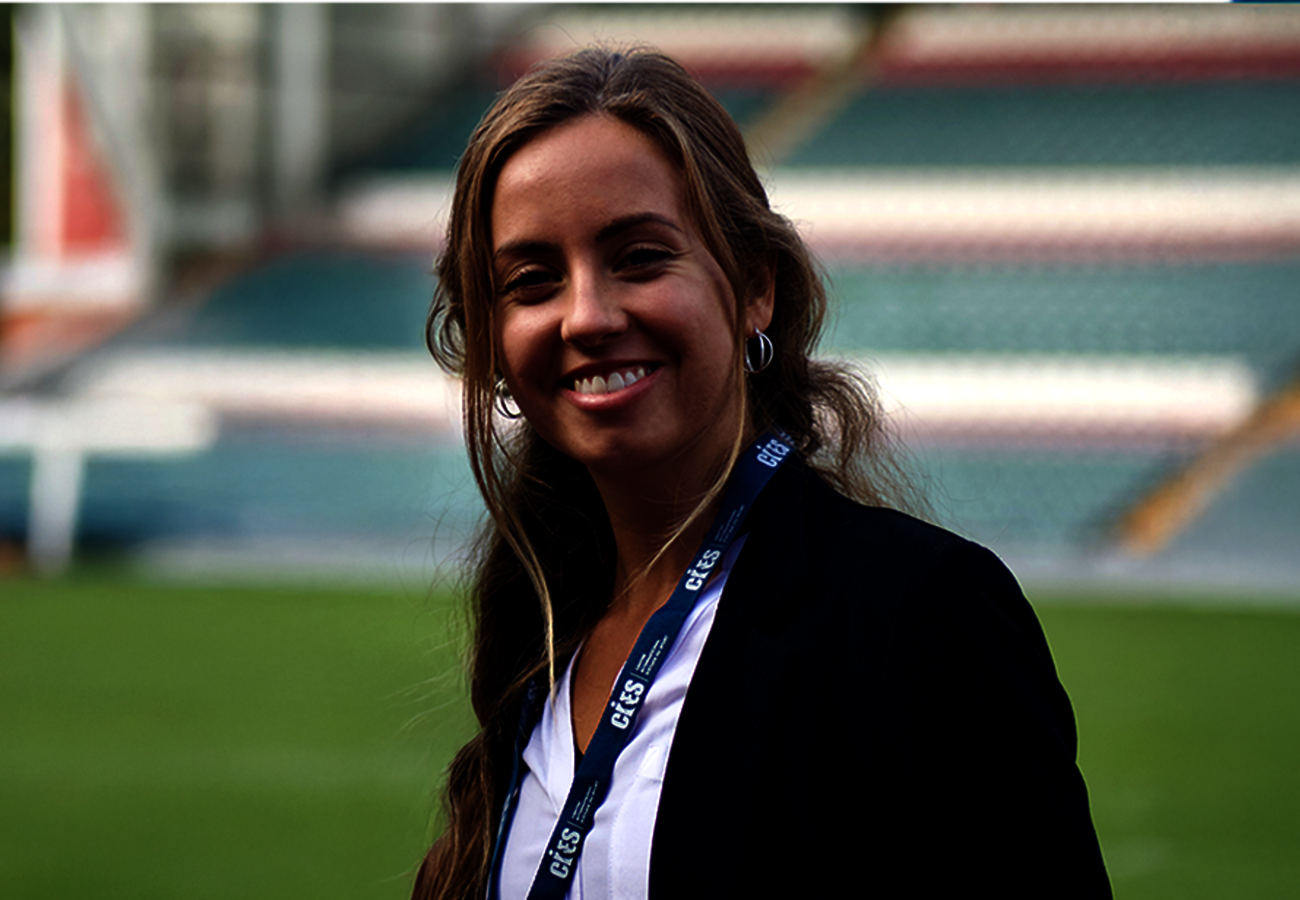NEVER STANDING STILL - ANTONIA LINDEMANN (FIFA MASTER 25th EDITION)

Antonia (Tona) Lindemann’s story begins in Mulheim, a small city in western Germany, surrounded by her mom, grandparents, and the encouragement to explore her interests. “My mom has always given me the freedom to explore,” Tona says. “I also mainly grew up with my grandparents. My grandfather was my role model in many ways.” This combination of close family ties and the autonomy to choose her own path (even sometimes without a destination) would shape a lot of how Tona approached school, sports, and eventually, the world beyond Germany.
Tona’s first love, starting from age four, was ballet. “I’ve always been a very active kid, spending lots of time outdoors. But ballet was the sport club where I would go most regularly and train. I really liked the community that we had.”
While a sport that instills discipline, ballet also taught her how to let go. “It does become very pressuring, very appearance based,” she admits. “As I got older, it went from being a more playful ballet to changing shoes, dancing on your toes, the more professional expectations.”
After leaving ballet at 13, Tona experimented briefly with other sports before discovering athletics in high school. Sprinting, particularly the 100 metres, became her specialty. And while the switch to an even more individualized, performance-based sport was a big change from her ballet community, it was also an early sign of her willingness to put herself in foreign environments, a trait that would later lead her back to team sports in an entirely new setting.
Upon graduating high school at 18, Tona made a spirited decision to travel to Australia on a working holiday visa. “That was my first solo trip,” she reveals. “I just booked the flights, printed out my CV, and either applied for jobs online or went straight to the places once I got there.” Over eight months, Tona lived and worked in Sydney, Melbourne, and explored the east and west coasts. “It was a very beautiful country, but it’s huge,” she smiles. “And even in eight months I would say it’s so hard to see even half.”
Even still, her travels gave her confidence: “It was the boost that opened my eyes that it is possible that I can live somewhere else outside Germany.” When she returned, Tona was determined to find a way to keep sport central to her life while staying connected to the wider world. But before she landed on the next step, she decided to consider other paths.
Once back in Germany, Tona weighed career options that would have kept her close to home. “I did have sport on my mind, but I had also thought about joining the police for a long time,” she says. “I actually applied for it and was accepted.” After some consideration, Tona knew she didn’t want to stay in one place for too long. “Police requires you to stay in Germany, to be in one place for the rest of your life, so I called it off.”
Tona also explored going to a rigorous and selective sports school in Germany. “You have to go into a sports day and go through different disciplines,” she says of the entry exam. “It is fun, but it’s very tough to get into because you have to be good at all of them. And if you flunk in one, you are already out.” During the test, Tona failed one discipline, but failure in one sense meant opportunity in another. “I see it now as a good thing because it opened the door for me to go to Malta.” That decision (stepping away from a fixed career in Germany) cleared the way for her next chapter, one set on a small island with a big spirit.
Pursuing her bachelor’s degree in sport and physical activity science at the University of Malta gave Tona a new, international home. “What I love about Malta is that it’s a very small island full of international people.” In the classroom, the programme also gave her a broad look at all-things sports. “We covered literally everything within sports: biomechanics, nutrition, sport management, sport media, sport history.”
Beyond the classroom, Malta became her home base for six years. She coached children in football, earned her personal trainer license, and even explored marketing: “I did have experience within the marketing sector. I do like the creative part as well.”
Malta also introduced Tona to something she hadn’t experienced much before: team sports. “Before Malta, everything I’d done – ballet, athletics – was individual and very performance-based,” she says. “When I got there, I started playing football and volleyball with the international student community, and it was the first time I really experienced that team environment.”
The change felt refreshing. There was less pressure to hit a personal best and more joy in playing for the shared goal. “It gives you a completely different feeling than if you’re competing on your own.” Those easy camaraderie-built friendships which prove that sport’s impact isn’t just limited to formal competition.
So, when Malta gave her professional skills and a global network, she began to seek ways to use sport for a deeper purpose. “There was a time when I asked myself ‘What does interest me? What’s my why?’ I’ve done youth coaching, and I know the practical part of sport, but I do want to do something good with it as well.”
That’s how she landed in Nepal. A short but meaningful stint with a remote NGO there deepened Tona’s interest in sport’s social impact. “The programme was specialised for girls, helping to give back to the community, be it through English classes or football lessons.” The experience left her wanting to merge her professional skills with projects that create meaningful change, leading her to seek out a master’s degree with that vision in mind.
“After my experience in Nepal, I knew I wanted to go deeper into the sport industry and have more experience, more international opportunities to work from other countries than Malta.” In her search for the right graduate programme, Tona discovered the FIFA Master, an opportunity to combine her existing background with new experiences in an international environment.
“It was again a very international programme,” she reflects about her time on the 25th edition of the programme. “But it also covered a lot of things that I did not really come across before.” And now, Tona is taking with her a whole lot more than what she arrived with. “The programme taught me so many things, like becoming more in touch with women’s sport. I find that very interesting.” With the programme now complete, she’s considering how to translate this newfound knowledge into tangible action.
From the ballet studios of Mulheim to the training grounds of Nepal, Tona’s path has been defined by motion – sometimes across continents, sometimes into unfamiliar roles, but always toward something that challenges her. Each shift, whether sparked by curiosity or circumstance, has expanded how she sees herself and the role sport can play in the world. “I want to have the opportunity to work in different countries and give back to those communities.”
Now, with the FIFA Master behind her, she’s looking forward to whatever comes next, probably something that keeps her learning, on the move, and connecting with people through sport. After all, she’s never been one to stand still for long.
By Geneva Decker
FIFA Master 25th edition student
FIFA Master - International Master in Management, Law and Humanities of Sport, ranked Europe's No.1 course a record 12 times by SportBusiness.
FIFA Master - 25 years of Excellence in Sport Business Education - organised by CIES in partnership with De Montfort University (UK), SDA Bocconi School of Management (Italy) and the University of Neuchâtel (Switzerland).









